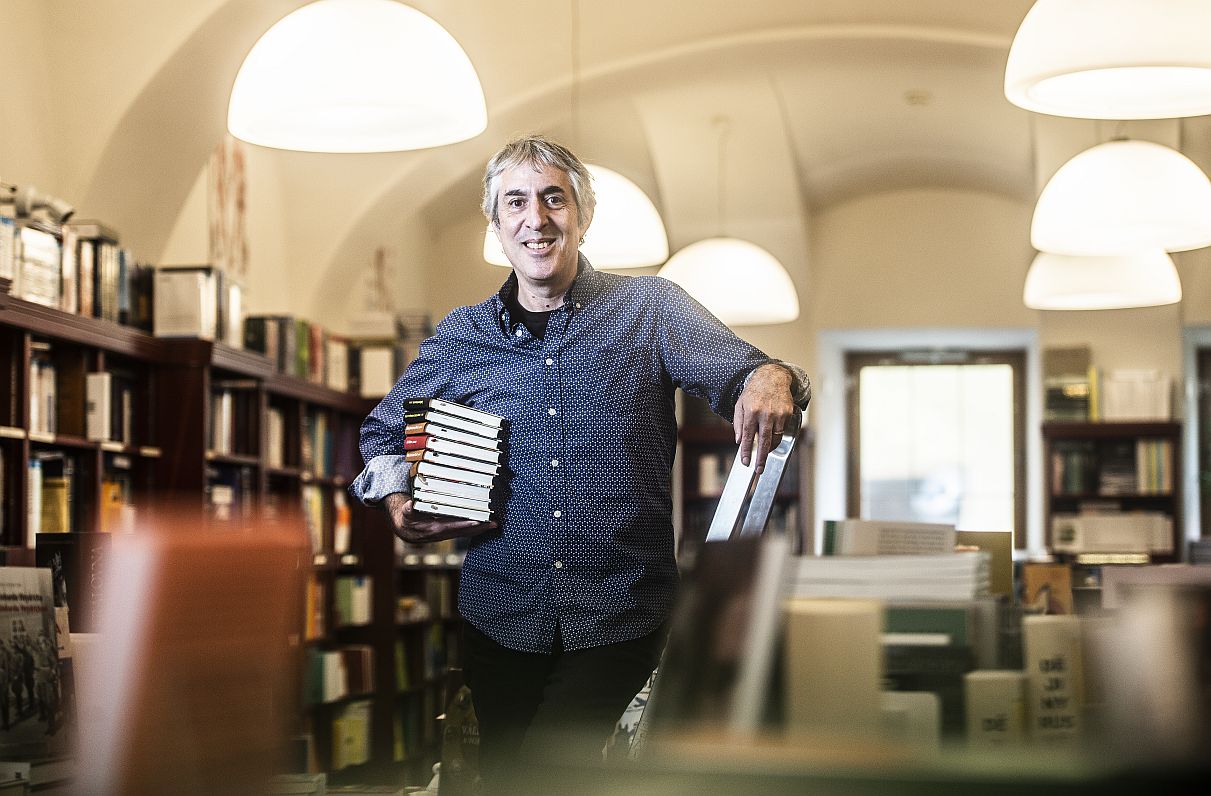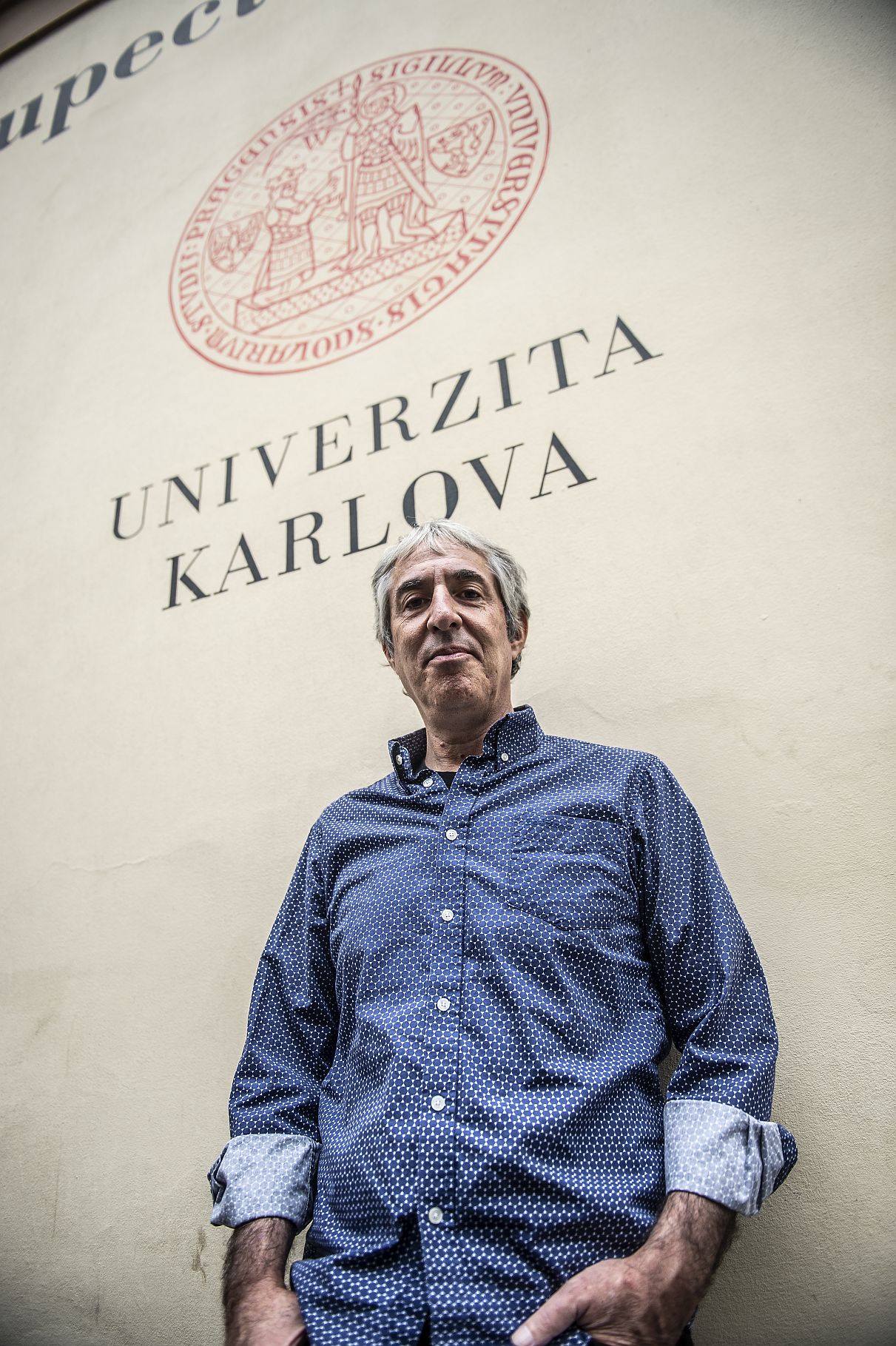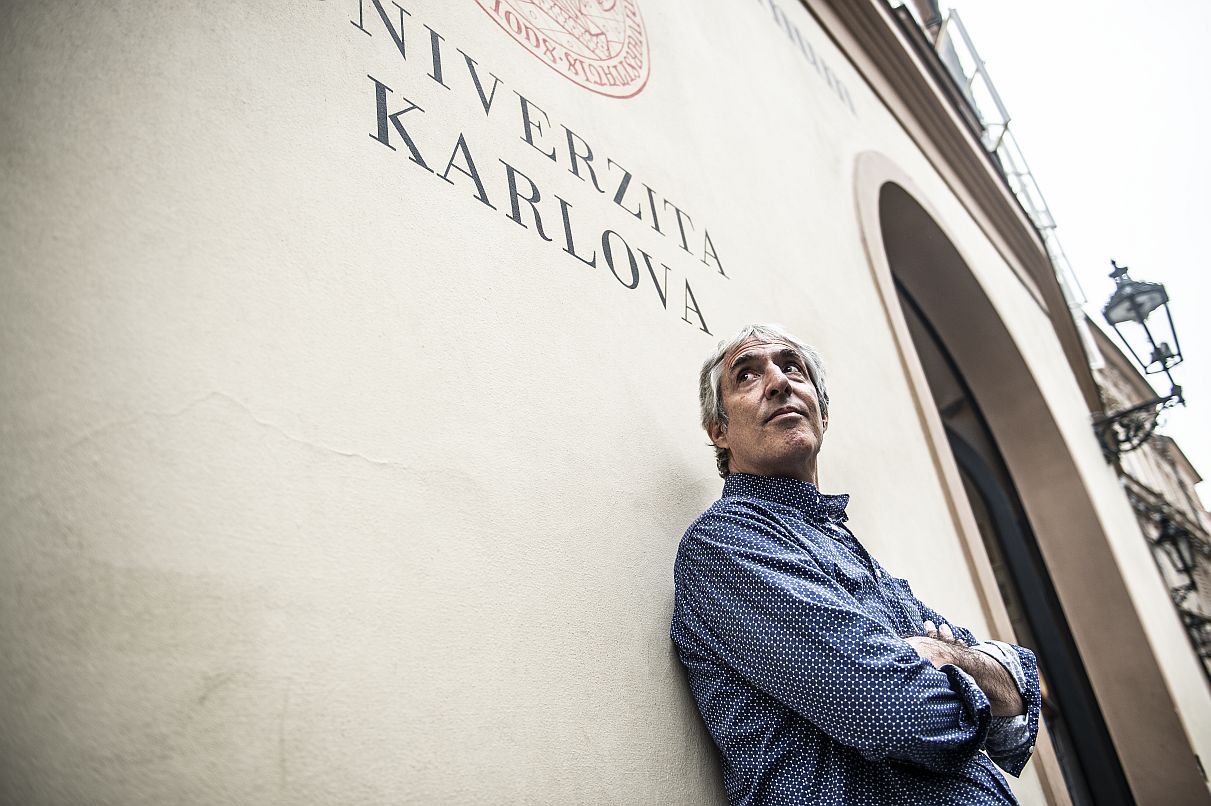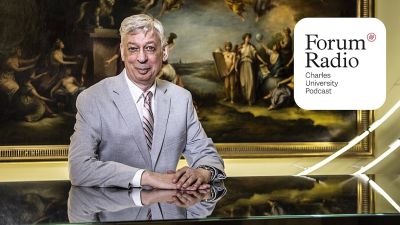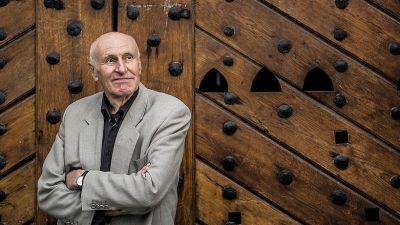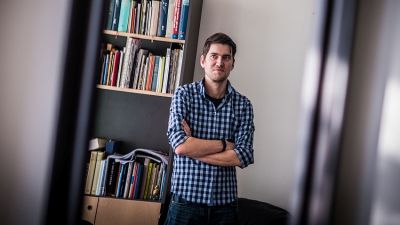In today's episode, I talk to well-known American literary translator Alex Zucker. Zucker’s translations include novels by some of the best contemporary Czech authors including Bianca Bellová, Petra Hůlová and Jáchym Topol. He has also worked closely with CU’s Karolinum Press, taking part last autumn in a debate titled labours of literary translation. We delve into a bit of that as well but begin with Alex Zucker’s original aim to be a marine biologist before everything changed, before he became interetsed in international affairs, completed a degree at Columbia, visited Czechoslovakia, and moved here for half a decade not long after the fall of the Iron Curtain.
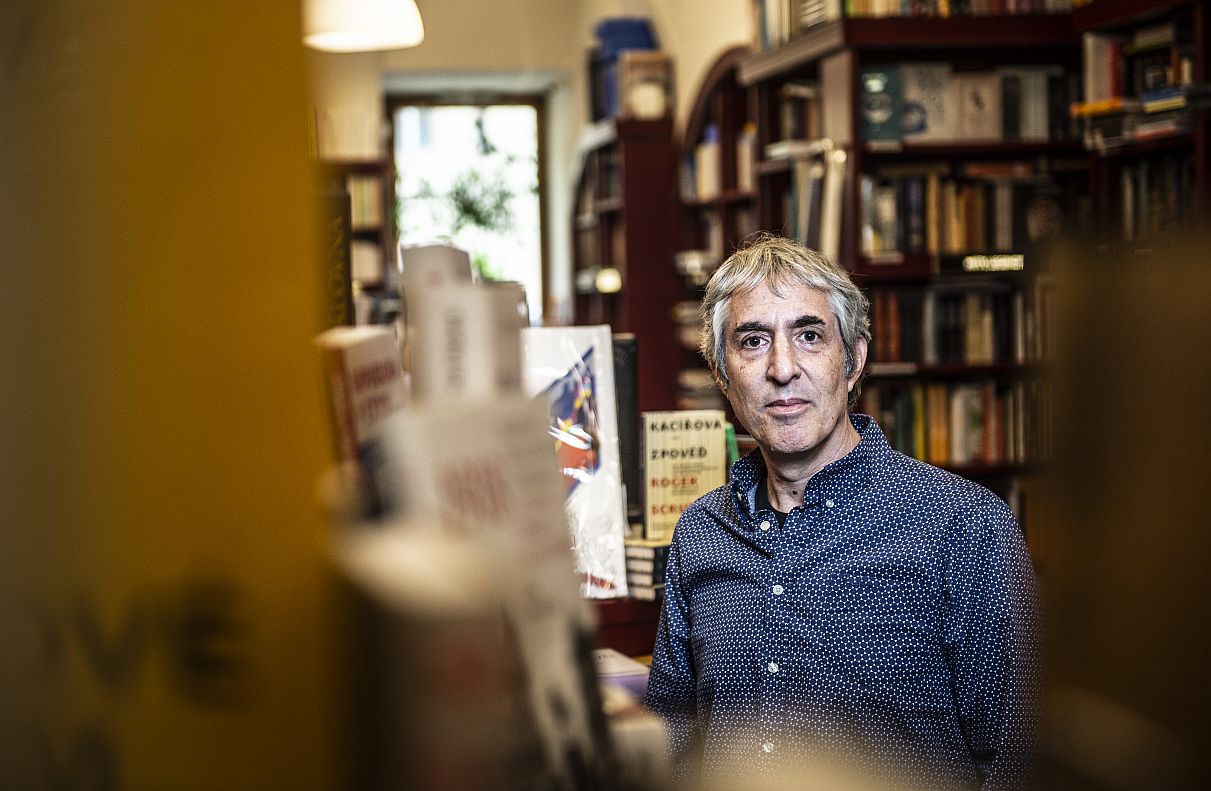
Literary translator Alex Zucker photographed at Charles University's Karolinum Bookshop in Celetná Street in the autumn of 2022.
Excerpts from our interview:
The only thing we knew about Czechoslovakia as kids were hockey pucks
“Growing up, we didn’t learn anything about Czechoslovakia. As a kid, I wouldn’t have known that a country like Czechoslovakia existed except that I played hockey and all of the pucks said Made in Czechoslovakia. Later, after completing my Bachelor’s, my girlfriend moved to London. She and I were both big readers and we both read Milan Kundera’s The Unbearable Lightness of Being [which had been published only recently in English - ed. note]. And we decided we would visit Czechoslovakia in 1987. I became interested in international affairs in this part of the world and decided to learn Czech and studied at Columbia, learning Czech from Kundera’s translator, Peter Kussi.”
The ‘90s expat influx and Prague’s first English-language paper
“When I moved to Czechoslovakia in 1990 I was basically a ‘freak’. You know, I knew of no other Americans here. I worked for the Czech News Agency (ČTK) translating news into English and there was no indication of what was to come: that so many foreigners would soon arrive. Some of them from UC Santa Barbara founded Prague’s first English-language newspaper, called Prognosis, for which I ended up also working. It was a time of a lot of freedom and every single Czech I know still looks back at the period as the most free of any they experienced. People felt free and were free to try new things as not everything was legislated yet: for example, you couldn’t require people to have a degree for a job because many people had been denied a higher education by the communists. You could get into government, you could open an art gallery where a pub had just closed, sometimes only for a month or on weekends. There was a lot of improvisation and creativity and freedom in that.”
Translating style: No one size fits all
“As a literary translator the main thing I think I am translating is style. It’s not translating words. You can look up the meaning of words or of a sentence when writing a translation from Czech but you have to know a lot more about what is going on. The example I give is how many different ways to call somebody ‘a jerk’. Which words you use will depend on who is speaking, who they are saying it to, how old are they, what gender are they, social class, what was said right before, what was said right after, the period the story takes place, you know what I mean? Are they in the city or in the country? There is no one size fits all solution and that’s a matter of style.”
Famous Czech authors
“Havel, Hrabal, Klíma and Kundera were heavily translated and there is a lot more being published from new or newer writers now but with smaller presses. The four famous names I mentioned were heavily championed in the UK, the US, and in some cases in Germany, which made them major figures in international literature. And that was because of extra-literary factors: namely the fact they were writing behind the Iron Curtain. Of course their writing had to be on a certain level but the fact they were from behind the curtain contributed a lot to their success.”
As readers we want good stories
“I get asked a lot about how much interest is there in Czech literature in the English-speaking world and I always say ‘None’ (laughs). And I’ve said that in interviews with Czech journalists and it gets mistaken as a negative statement as opposed to the way publishing works and how people read. Most of us don’t read books based on the country the author comes from. We want to read a book because it has a good story, or the author seems interesting or it’s in a genre that we like. Books being classified by country is partly because of academia or the way countries promote themselves, but most of us don’t read that way. And a book and translation wouldn’t even coming close to breaking even if publishers focused solely on readers who are interested in a country’s literature. You are not going to get an audience and publishers know that they have to sell books on their merit. Not the country they are from or the language they were originally written in.”
| Forum Radio - Interview / Episode 10 / Alex Zucker - Literary translation is all about style / Runtime: 46 minutes. |
Alex Zucker’s translations from Czech include novels by Jáchym Topol, Bianca Bellová, Petra Hůlová, and additionally J. R. Pick, Heda Margolius Kovály, Patrik Ouředník, and Miloslava Holubová, to name a few. He has also translated stories, plays, subtitles, young adult and children’s books, essays, poems, philosophy and an opera. Zucker studied Czech and international affairs at Columbia. In the 1990s in Prague, he worked at the Czechoslovak News Agency and Prague's first English-language paper, Prognosis. He works closely with publishers including Charles University’s Karolinum Press. You can learn a lot more about him at his website.


